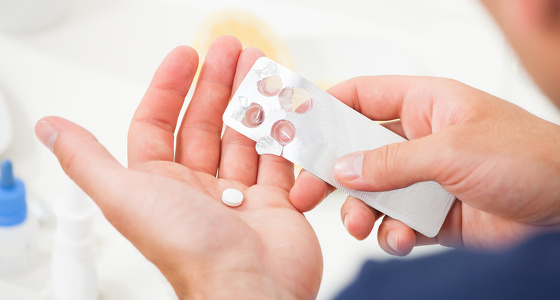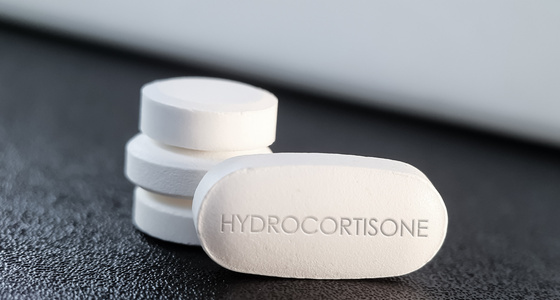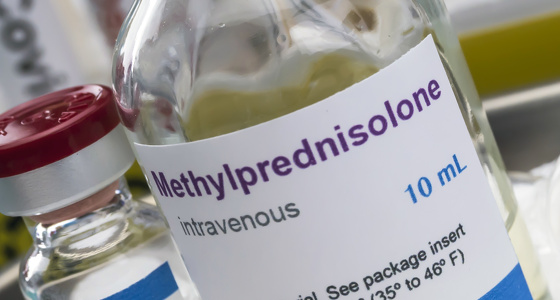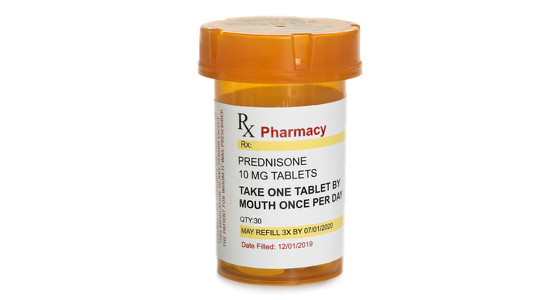Corticosteroids, or commonly just referred to as steroids, are a common medication used in the treatment of inflammatory bowel disease (IBD). Find out more in this article...
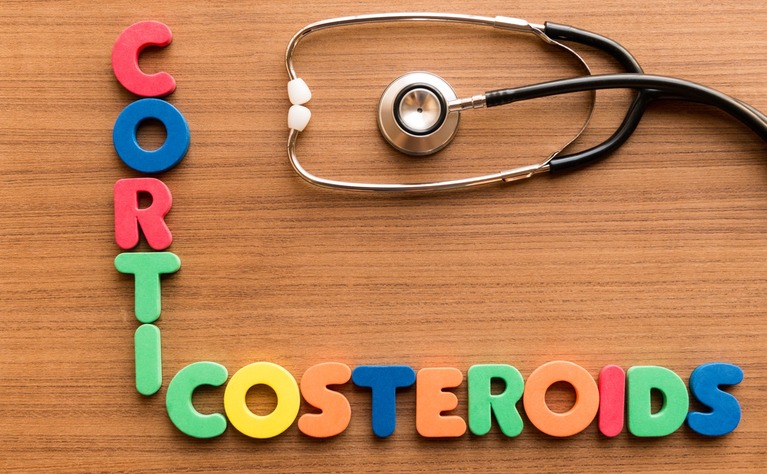
Corticosteroids, or commonly just referred to as steroids, are a common medication used in the treatment of inflammatory bowel disease (IBD) as an induction therapy. People are often placed on them initially after diagnosis (or even while awaiting diagnosis) and when they go through a flare of their ulcerative colitis, Crohn’s disease or microscopic colitis to bring it under control. However, they do have some serious and undesirable side effects which can occur if they are taken for a sustained period of time.
Corticosteroids are anti-inflammatories, meaning they decrease levels of inflammation in the body. They are man-made versions of the hormone cortisol which is created by the human body in the adrenal glands (two small glands at the top of the kidneys). Taking corticosteroids causes the body to slow down production of, or stop making, cortisol. The body then receives the cortisol it needs from the corticosteroids.
They are a fast-acting medication and many people who take them to help with moderate to severe flare ups of their IBD notice an improvement in their symptoms within days.
As well as being an anti-inflammatory medication, they also work to suppress the immune system. This may cause you to become more susceptible to catching infections.
They are not used in maintenance therapy for IBD (to help with the prevention of flare ups). Due to the potential side effects of corticosteroids they are usually only prescribed for short periods (of around three weeks) to help bring acute IBD flares under control.
Corticosteroids are used to treat a huge range of conditions as well as IBD. These include asthma, eczema, chronic obstructive pulmonary disease (COPD), lupus and multiple sclerosis.
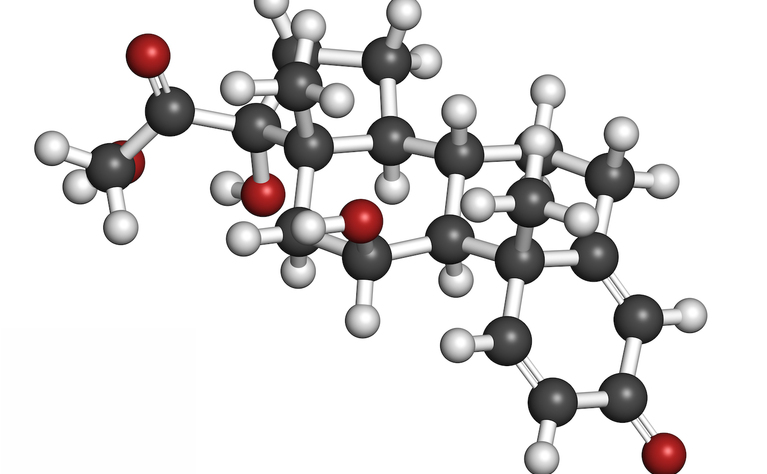
There are three main ways that steroids can may be administered for the treatment of IBD. These are:
You may be given both a course of oral and also rectal steroids simultaneously. Intravenous steroids are usually given to people when they are admitted to hospital.
There are many different types of corticosteroids and they may all have different effectiveness for different people. Below some of the main types and brands are listed:
Oral
Rectal (enemas/suppositories/foams)
Intravenous (IV)
You can find out more about some of the types of corticosteroids in the article below, or keep reading for more general information about corticosteroids:Many people experience side effects of corticosteroids - to varying degrees. Potential short term side effects of taking steroids include:
Potential longer term side effects of taking steroids include:
Corticosteroids can interact with some other medications so be sure to inform your doctor of any other medications you are taking before starting corticosteroids.
As corticosteroids can cause weakening of the bones your doctor will probably suggest you take calcium and vitamin D (to help absorb the calcium) supplements at the same time.
If you already have some underlying health conditions corticosteroids should be used with caution. These conditions include liver problems, mental health issues, osteoporosis and more.
Corticosteroids should not be stopped abruptly. As they reduce or stop the natural production of cortisol by the body they need to be stopped slowly to allow the body time to start producing cortisol again. Your doctor will be able to advise you on how to do this.
Some people do not respond to corticosteroids.
It is possible to become steroid dependent - meaning that you are unable to taper off steroids without starting a flare. This can cause people to end up in a vicious cycle of trying to come off the steroids but starting to flare again as the dose is reduced. This is often how some people end up staying on steroids for longer periods of time.
Although corticosteroids are not the same as anabolic steroids used by bodybuilders they are still a banned drug by the World Anti-Doping Agency for athletes.
